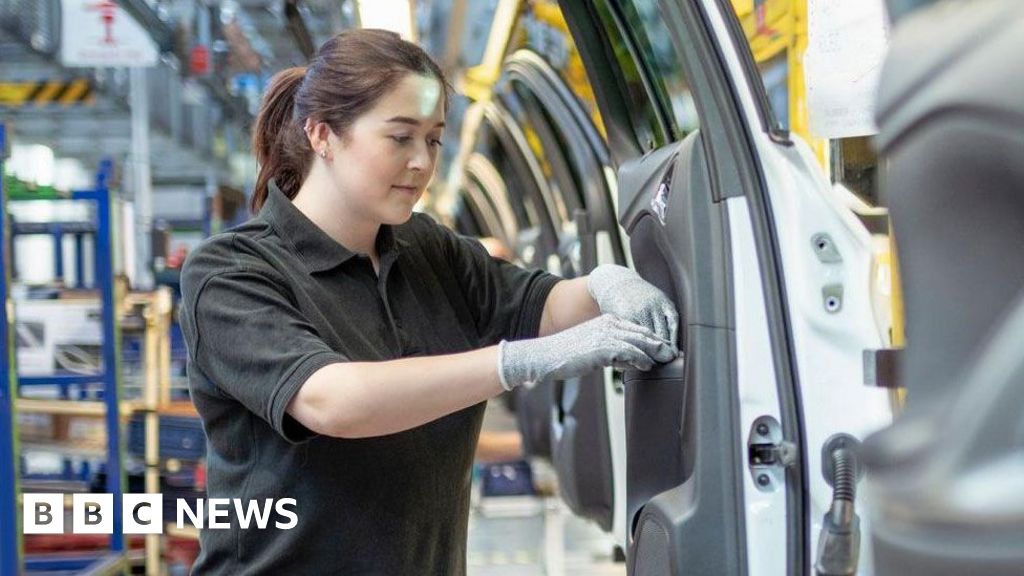The government has announced a relaxation of electric vehicle (EV) sales targets to support the car industry in response to trade tariffs from the US.
The ban on selling new petrol and diesel cars will still be implemented by 2030, but manufacturers will now have more flexibility with annual targets and lower fines.
Transport Secretary Heidi Alexander explained on BBC Breakfast that these changes are part of the solution to address US tariffs and are not a “silver bullet”.
Opposition parties in the UK have expressed concerns that Labour’s measures may not be sufficient to uplift the car industry.
US President Donald Trump has imposed a 25% tariff on cars imported to the US, impacting the UK’s major export market in the motor industry.
This tariff went into effect recently, in addition to a 10% tax on almost all UK products announced by Trump.
Although a consultation on the government’s EV target adjustments concluded in mid-February, Alexander stated that the government hastened the implementation process in response to the tariffs.
Working closely with UK car manufacturers, the government has reinforced its commitment to phasing out while introducing practical reforms to support the industry in meeting this ambition.
Currently, 28% of new cars sold in the UK this year must be electric, with this target increasing annually until 2030.
Manufacturers will now have more flexibility in meeting their yearly targets, allowing them to compensate in one year if they fall short and sell more the following year, for instance.
Moreover, the fine of £15,000 per non-compliant vehicle sold with the latest emissions standards will be reduced to £12,000.
Additionally, the ban on selling hybrid vehicles post-2035, which combine traditional engines with electric motors, has been confirmed.
Smaller British firms such as Aston Martin and McLaren will retain the permission to sell petrol cars beyond the 2030 deadline
As part of these changes, the car industry will also receive £2.3 billion in tax breaks.
The ban on selling new petrol and diesel cars was extended to 2035 by the previous Conservative government, but Labour pledged to reinstate the 2030 deadline in their 2024 election manifesto.
Car industry leaders have previously cautioned that the transition to electric vehicles is not occurring swiftly enough to meet the deadline due to the high costs and limited charging infrastructure.
Sir Keir mentioned that these measures will boost growth, benefiting working individuals and allowing UK-made cars to be exported globally.
Mike Hawes, CEO of the Society of Motor Manufacturers and Traders, expressed that these changes are imperative.
However, Robert Forrester, CEO of Vertu Motors, criticized the announcement, stating that there is still a significant financial burden on manufacturers, despite the reduced fine per car.
He remarked that these adjustments are merely superficial and do not address the core issues.
Shadow business secretary Andrew Griffith labeled the measures as “half baked” and echoed Conservative leader Kemi Badenoch’s belief that “net zero by 2050 is unattainable”.
The Liberal Democrat transport spokesperson called for “enhanced incentives” for consumers to purchase electric vehicles and asserted that these changes may not sufficiently shield the sector from the repercussions of the US tariffs.
The US stands as the second largest export market for the UK’s car industry, following the European Union.
Coventry-based manufacturer Jaguar Land Rover declared a temporary halt to US shipments in April to adapt to the new trading conditions.
Furthermore, a separate 10% tariff on UK imports was enacted recently, with higher rates imposed on some other major economies.

